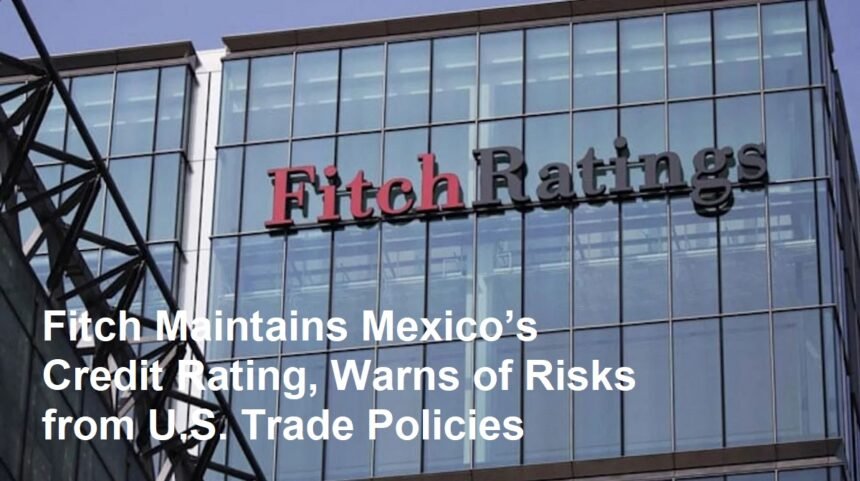Credit rating agency Fitch Ratings has affirmed Mexico’s sovereign credit rating at “BBB-” with a stable outlook, signaling confidence in the country’s overall economic and fiscal management. However, Fitch also issued a cautionary note about the risks posed by increasingly protectionist trade policies from the United States, which could exacerbate Mexico’s ongoing economic slowdown.
Fitch’s Assessment of Mexico’s Economy
Fitch recognizes Mexico’s large and diversified economy, robust external finances, and prudent macroeconomic policies as key strengths supporting the credit rating. Despite these positives, the agency highlighted several long-standing structural challenges that continue to constrain Mexico’s growth potential and fiscal stability. These include:
- Muted long-term economic growth prospects.
- Weak governance indicators.
- Fiscal challenges stemming from a low revenue base and rigid budget structures.
- Contingent liabilities related to the state oil company Pemex.
Fitch projects that Mexico’s economy will contract by 0.4% in 2025, weighed down by tariffs, policy uncertainty, fiscal tightening, and a slowdown in the U.S. economy. This follows a growth rate of 1.5% in 2024, which itself was a decline from 3.3% growth in 2023. A modest recovery to 0.8% growth is expected in 2026.
Risks from U.S. Trade Policies
A major concern for Fitch is Mexico’s vulnerability to U.S. trade protectionism due to the deep economic integration between the two countries. The agency warned that the economic slowdown already underway in Mexico could worsen amid an aggressive turn toward protectionist trade policies in the U.S., particularly under the Trump administration’s approach.
Tariffs and trade barriers imposed by the U.S. could disrupt supply chains, increase costs for Mexican exporters, and reduce foreign investment. This would further strain Mexico’s economic performance and fiscal position.
Structural and Fiscal Challenges
Fitch also pointed out Mexico’s fiscal challenges, including a relatively low tax revenue base and budgetary rigidities that limit the government’s ability to respond flexibly to economic shocks. The state oil company Pemex remains a significant contingent liability, with concerns about its governance and financial health.
The agency noted that reforms aimed at improving tax collection and fiscal management are crucial but remain uncertain in their implementation and effectiveness. Additionally, constitutional reforms, especially those affecting the judiciary, could negatively impact Mexico’s institutional profile and governance, further complicating the credit outlook.
Outlook and Stability
Despite these risks, Fitch’s stable outlook reflects confidence that Mexico’s macroeconomic policies and external finances will help the country manage these challenges without a downgrade in credit rating. The agency emphasized the importance of continued fiscal discipline and structural reforms to support sustainable growth.
Mexico’s Deputy Minister of Finance highlighted that Fitch’s reaffirmation is consistent with other rating agencies’ assessments this year, underscoring the country’s stable creditworthiness.
Conclusion
In summary, Fitch Ratings has maintained Mexico’s “BBB-” credit rating with a stable outlook, acknowledging the country’s economic strengths but warning of significant risks from U.S. trade protectionism and internal structural challenges. The agency projects a slight economic contraction in 2025, followed by a modest recovery, but cautions that policy uncertainty and fiscal constraints could weigh on Mexico’s growth prospects.
Mexico’s close economic ties with the U.S. make it particularly sensitive to changes in American trade policies, and the ongoing protectionist stance could pose a serious risk to Mexico’s economic stability. Fitch’s assessment highlights the need for Mexico to pursue reforms and maintain prudent fiscal management to navigate these external and internal challenges.









